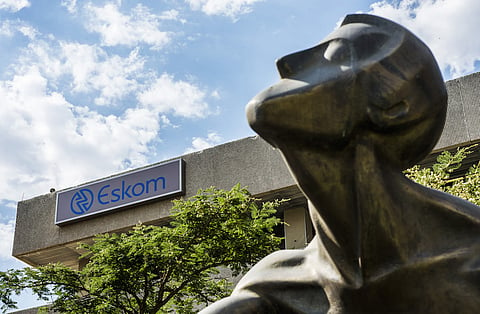Gordhan’s SOE swipe forces NERSA’s hand, delays Eskom tariff decision
In what must come as music to the ears of consumers, the National Energy Regulator has postponed the Eskom tariff hike announcement. The regulator took a cue from Finance Minister Pravin Gordhan, after he said increases must be necessary and not made to simply make things more comfortable. In his budget address, Gordhan also "delayed the transfer of R5bn until Eskom complies with several conditions attached to the equity allocation". While this move may not see the electricity increase dropped all together, the focus on 'improved governance, financial management and state-owned entities contribution to the developmental agenda' is a step in the right direction. Gordhan is standing with his head held high, and the trickle down effects are noticeable, but for it to be a real success he needs the same support from those within government. – Stuart Lowman
By Fadia Salie
Cape Town – The National Energy Regulator (Nersa) has postponed its announcement on the Eskom tariff hike decision until Tuesday, following Finance Minister Pravin Gordhan's swipe at the power utility on Wednesday.
Gordhan said at his press briefing ahead of his 2016 Budget Speech that tariff increases should only be approved if they are necessary, and not just to make things more comfortable.
His comments came a day before Nersa was scheduled to announce possible electricity price increases through a tariff hike to fund Eskom's shortfalls.
"Regarding tariff increases, are they necessary or just comfortable in a particular environment?" Gordhan asked. "We need to improve governance, financial management and state-owned entities' contribution to the developmental agenda."
In the Budget Review, Treasury said "further efficiency improvements are necessary at Eskom to ensure moderation in future tariff increases".
"SOEs are not sacrosanct," Gordhan said. "We are willing to take a tougher look at them."
On top of this, it was revealed in the Budget Review that Gordhan "delayed the transfer of R5bn until Eskom complies with several conditions attached to the equity allocation".
Read also: Fixing Eskom: Gordhan v Molefe as privatisation option gets public airing
"These conditions relate to implementing cost reductions, improving maintenance and executing the capital expenditure programme," the review said.
Nersa said in a statement on Wednesday the postponement of the tariff hike announcement "is due to further verification that needs to be conducted on certain information".
Eskom submitted an application to Nersa in November last year to recover R22.8bn, which the utility said it used to avert load shedding.
Nersa will evaluate the "regulatory clearing account" (RCA) balance for the first year (2013/14 period) of the third multi-year price determination (MYPD3) amounting to R22.8bn.
Should Eskom be granted the R22.8bn adjustment for the 2013/14 financial year, all cities in South Africa will face an electricity tariff increase of at least 16% in July, Leslie Rencontre, director of electricity at the City of Cape Town, said at the Nersa public hearings into Eskom's tariff hike application.
Read also: Eskom's Molefe – Borrowed Money will be repaid with New & Revised tariffs
Peter Attard Montalto, emerging markets economist at Nomura, said earlier this week he expects a figure of about 14% to be granted for the coming fiscal year (below the 16.6% applied for), but the risk may well be skewed to a lower award.
Treasury on Wednesday warned about the effect the increase in food inflation and Eskom's likely tariff hikes could have on consumers. "If these result in higher consumer price index inflation over the coming year, there will be upward pressure on inflation-linked expenditure, including compensation, social grants and free basic services," it said.
"As a result of the 8% annual tariff increase approved by Nersa for the period up to 2017/18, the cost of providing free basic electricity is rising," Treasury said. "Equitable share allocations compensate municipalities for this, but not for any additional increases in the bulk price of electricity approved after the budget is tabled."
Read also: Eskom must invest another $15bn by 2022 to keep electricity grid working
Treasury explained why government provides support in the form of guarantees to Eskom. "In the event that Eskom is unable to purchase power as stipulated, government must buy the power on Eskom's behalf," it said.
"The probability of default is low, since the regulator generally approves tariff increases that accommodate these agreements. However, significant deterioration in Eskom's financial position may increase government's risk exposure."
Power-purchase agreements between Eskom and independent power producers providing renewable energy are now categorised as contingent liabilities, Treasury said in its budget.
"This change adds about R200bn to contingent liabilities in 2015/16. The agreements oblige Eskom to buy power from these producers over a 20-year period at a price agreed to by Nersa." – Fin24
Source: http://www.fin24.com/

